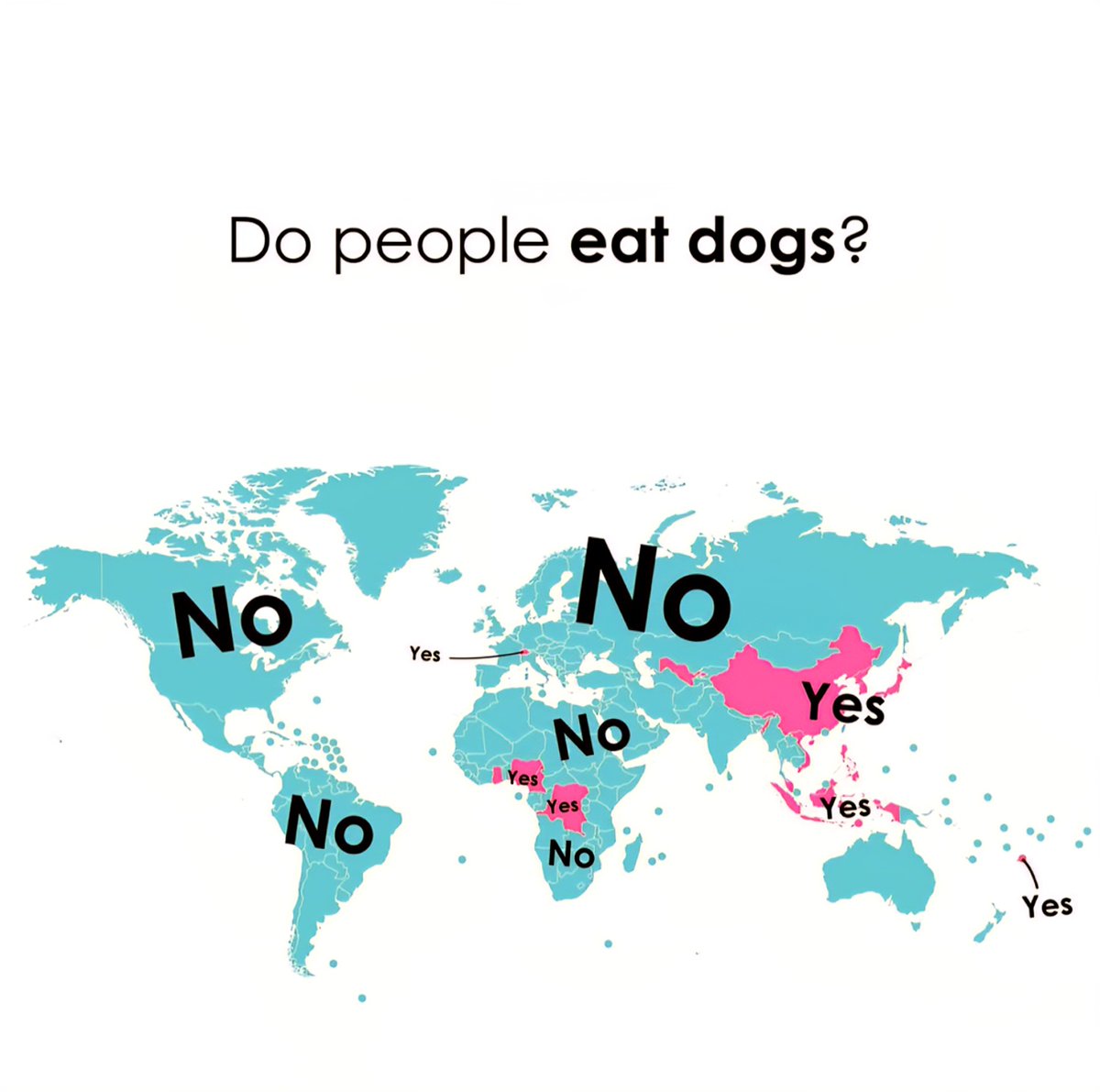Select Language:
Countries Where Dog Meat Is Eaten
1. South Korea: A Controversial Tradition
South Korea has long been associated with the consumption of dog meat, a practice that dates back centuries. Despite increasing global criticism, it remains a part of some regional cuisines, especially during the hot summer months when dog meat soup, known as “boshintang,” is believed to boost stamina. However, attitudes are shifting, with growing animal rights activism and legal efforts aimed at phasing out the trade. In recent years, many South Koreans have voiced opposition, and several dog meat markets are closing down as alternatives to traditional dishes gain popularity.

2. China: A Longstanding Custom Under Scrutiny
China is another country where dog meat has historically been consumed, particularly in southern regions like Guangdong and Guangxi. Festivals such as the Yulin Dog Meat Festival have brought international attention and condemnation, sparking protests from animal rights advocates worldwide. While consumption has been declining as urbanization increases and awareness about animal cruelty grows, it still persists in certain areas. Chinese authorities have recently begun to crack down on illegal dog meat trade, signaling a potential shift in societal norms over the coming years.
3. Vietnam: Cultural Traditions and Modern Opposition
In Vietnam, dog meat remains a customary dish in many rural communities, especially during family celebrations and festivals like the Lunar New Year. The practice is often intertwined with traditional beliefs about health benefits, such as boosting vitality. Nevertheless, younger generations and international travelers have begun challenging these customs, emphasizing animal welfare. Several Vietnamese cities have introduced measures to regulate or discourage dog meat consumption, reflective of changing cultural attitudes amidst globalization.
4. Philippines: A Mix of Customs and Modern Perspectives
While not as widespread as in some neighboring countries, dog meat eating still exists in parts of the Philippines. It is often linked to cultural practices in indigenous communities and during traditional festivals. However, national laws prohibit the slaughter of dogs for meat, and advocacy organizations are actively working to end dog meat trade entirely. Increased awareness campaigns and legal enforcement have led to a decline in ritualistic practices involving dog consumption in recent years.
5. Nigeria and African Countries: Emerging Markets and Cultural Norms
In some parts of Nigeria and neighboring African nations, the consumption of dog meat is considered a source of protein and is part of local culinary traditions. Cultural perceptions vary across regions, with some communities viewing dogs as livestock rather than pets. Awareness about international animal rights standards is slowly gaining ground, leading to calls for legal reforms. Nonetheless, economic factors and deeply rooted traditions make change a slow process in these areas.
6. Switzerland and Some European Countries: A Never-Ending Debate
Although typically known for high animal welfare standards, Switzerland and certain European countries have debated the ethics of dog meat consumption. While it is generally illegal and highly taboo, isolated cases have occasionally caused public outrage. These debates often revolve around cultural relativism, with advocates arguing about respecting diverse customs versus promoting animal rights. Overall, the continent maintains strict laws against dog meat consumption, reflecting evolving societal values.
Recent Developments in 2025:
Across all these regions, there’s a noticeable global shift towards animal rights and more compassionate treatment of dogs. Governments are increasingly implementing bans, and international organizations continue to push for stricter enforcement. Public awareness campaigns, celebrity endorsements, and the growth of vegan and vegetarian lifestyles contribute to diminishing traditional appetite for dog meat. While the practice persists in some areas, its future appears uncertain as societies move toward more ethical standards.
Note: The images in this article depict relevant cultural contexts and the ongoing debates about dog meat consumption around the world.
Remember, the conversation about dog meat isn’t just about tradition; it’s about evolving perceptions of animals and ethics worldwide.







